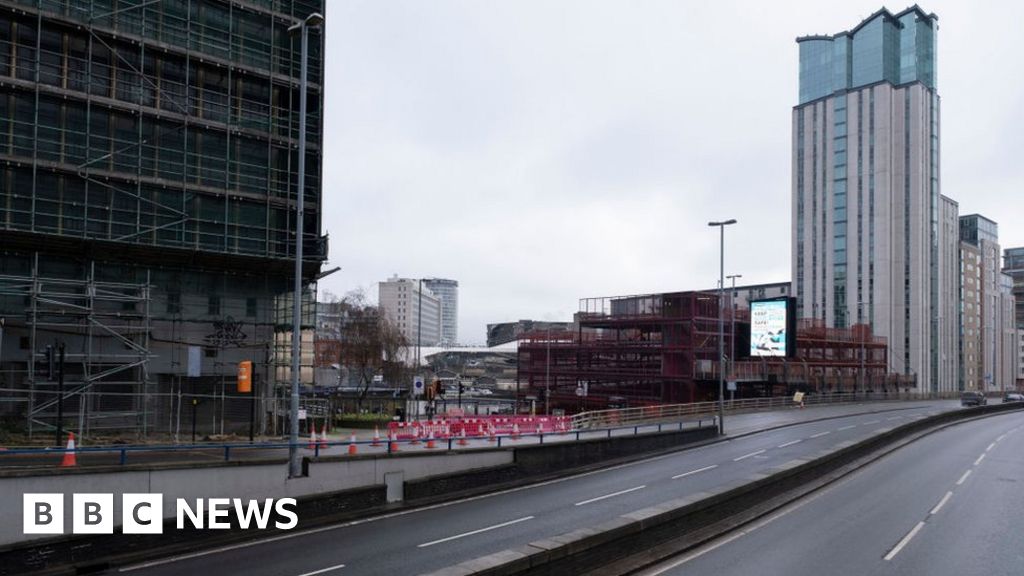OECD: Lockdowns Here To Stay, Even With Vaccine Plan

By Karishma Vaswani
Asia business correspondent
- Published
image copyrightGetty Images
More lockdowns and social distancing - even with a global vaccine rollout in place.
That's the sobering forecast for 2021 from Laurence Boone, the chief economist of the Organisation of Economic Cooperation and Development.
"We probably have another six to nine or twelve months of this ahead of us," she told the BBC's Talking Business Asia programme.
"I'm not saying it's easy, I'm saying we've seen that it worked in 2020".
"We must keep going both with the non-pharmaceutical measures, the government support and deploy the vaccine, as long and efficiently as fast as efficiently and securely as possible."
A new strain of the virus has led to fresh lockdowns in many parts of the world - including countries in Asia, such as South Korea, that have up until now managed to constrain new infections.
Nevertheless, the OECD says the global economic outlook for 2021 will improve - albeit from a low base.
It is expecting global GDP to rise to pre-pandemic levels by the end of this year, but warned that recovery won't be equal across all countries.
China, for instance, is expected to grow by 8% in 2021, while other OECD member economies are expected to grow by just over 3% on average.
The international economic body added that how well countries will recover will depend on how smooth the rollout of vaccines is.
Higher debt ahead
Speaking from Paris, Ms Boone also explained that governments have to keep spending to help shore up their economies in the face of this unprecedented crisis - even if that means adopting a more relaxed attitude to managing national budgets.
"These measures that we have strongly advocated do make sense because this crisis is temporary. So we're talking about temporary measures and a temporary increase in debt to GDP ratio," she said.
"Once we're out of the crisis, the economic fabric would have been preserved thanks to these measures, then we will have to take a step back, look at the evolution of public finances across country not only since COVID-19, but also since the financial crisis and see... whether governments are spending their money on the right priorities."
This is a different approach from the advice the OECD gave countries in the wake of the global financial crisis of 2008, when it advocated austerity.
The stark forecast highlights how challenging the health crisis has been for both rich and poor countries - and the difficult road they now face.
The OECD also warns of widening inequality, with lower paid workers in informal jobs at most risk.
- You can watch more of Laurence Boone's interview on BBC World News' Talking Business Asia programme this weekend
From Chip War To Cloud War: The Next Frontier In Global Tech Competition
The global chip war, characterized by intense competition among nations and corporations for supremacy in semiconductor ... Read more
The High Stakes Of Tech Regulation: Security Risks And Market Dynamics
The influence of tech giants in the global economy continues to grow, raising crucial questions about how to balance sec... Read more
The Tyranny Of Instagram Interiors: Why It's Time To Break Free From Algorithm-Driven Aesthetics
Instagram has become a dominant force in shaping interior design trends, offering a seemingly endless stream of inspirat... Read more
The Data Crunch In AI: Strategies For Sustainability
Exploring solutions to the imminent exhaustion of internet data for AI training.As the artificial intelligence (AI) indu... Read more
Google Abandons Four-Year Effort To Remove Cookies From Chrome Browser
After four years of dedicated effort, Google has decided to abandon its plan to remove third-party cookies from its Chro... Read more
LinkedIn Embraces AI And Gamification To Drive User Engagement And Revenue
In an effort to tackle slowing revenue growth and enhance user engagement, LinkedIn is turning to artificial intelligenc... Read more

